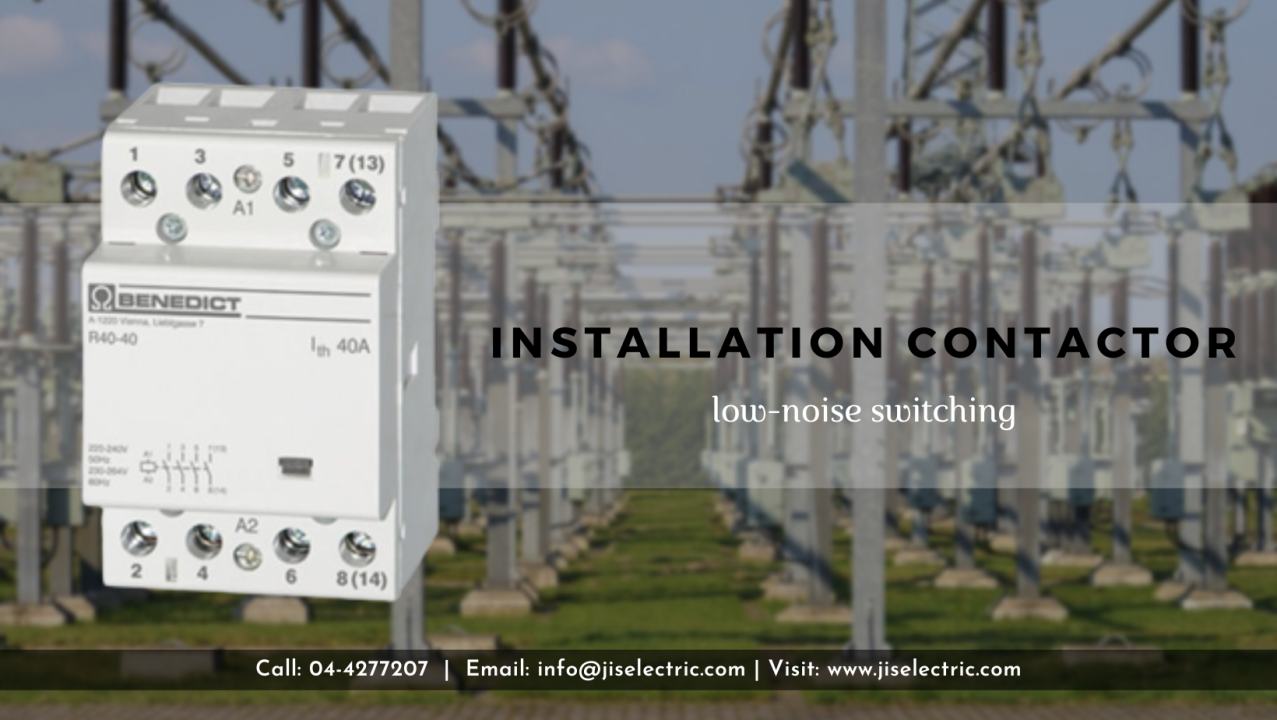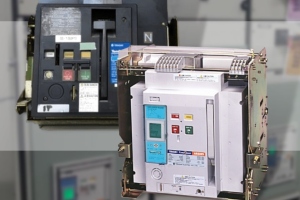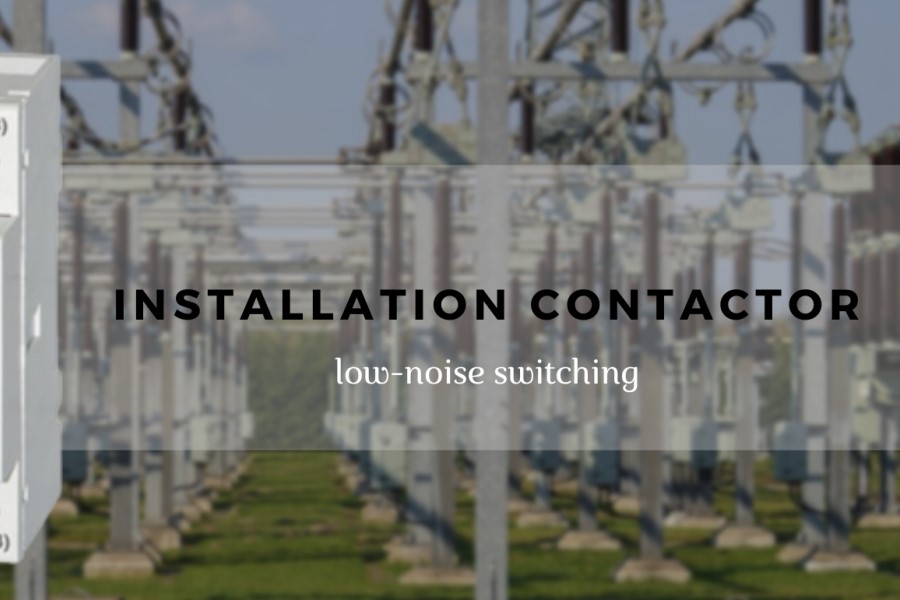Installation Contactors are switches activated electromagnetically. If a control current flows through the magnetic coil, the primary circuit close. It remains in the on-position as long as the control current is flowing.
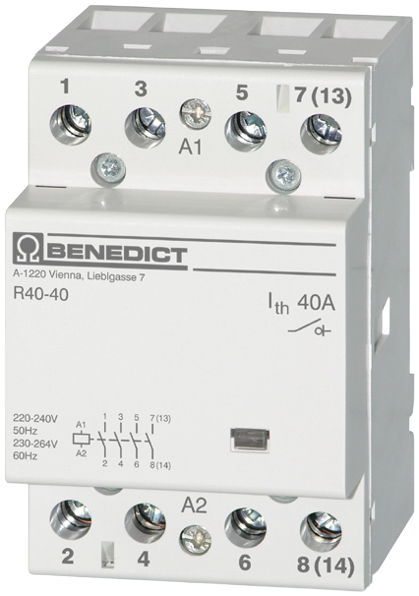
Properties:
- Installation contactors are particularly well suited to high frequencies of operation for switching high currents.
- Contactors are only intended up to a point for isolation operations. They must be protected against overloading and short-circuits by upstream protective devices.
- The R model satisfies the requirements of utilization categories AC 1 and AC 3 and to a certain extent AC 7b.
- The utilization categories denote the characteristics of the load and the maximum operating current and voltage that the contactor can switch in normal operation. The R model has an extremely low hum level and is suitable for continuous operation (duty ratio 100%).
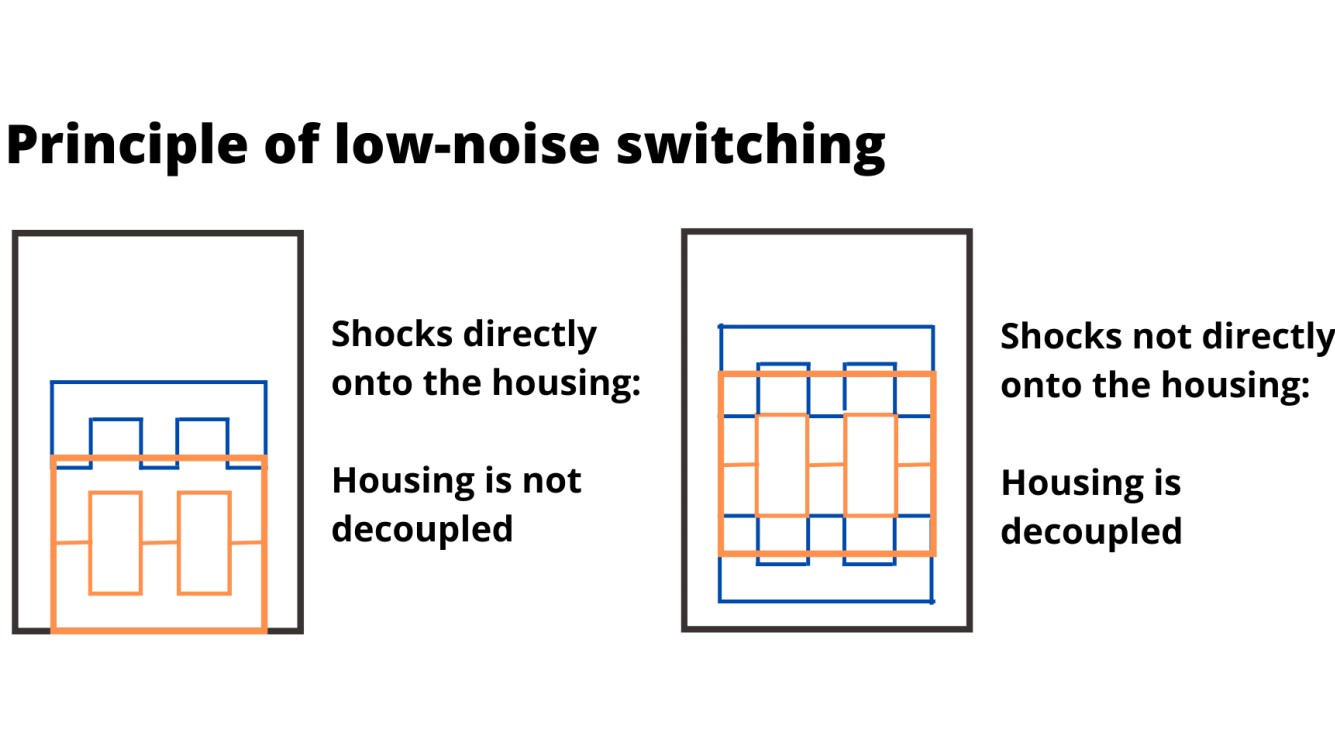
Applications:
- Light bulbs
- Fluorescent lamps
- Transformers for low voltage halogen lamps
- High-pressure mercury vapour lamps (HQL, HPL)
- Metal halide lamps (HQI, HPI)
- Low and high-pressure sodium vapour lamps
- Thermal storage heating stoves
- Drives (motors)
Benefits:
- Space-saving with high lamp loads per pin
- Low power consumption
- Large clamp cross-sections with generous terminal compartment
- Low level of heat build-up
- High thermal loading capacity of poles
- Low noise switching

